The year 2022 will be used as a reference year in any dairy reduction scheme and the scheme will be voluntary, Minister for Agriculture Charlie McConalogue has said.
Were the Department to contemplate any reduction scheme on the dairy side, he said it “would intend to use 2022 as a reference year against which any reduction would be measured”.
“It is important to provide clarity on that point, to avoid the possibility that any individual might be misled into speculating on the configuration of any possible reduction scheme in the future,” he told the IFA AGM.
He said that setting 2022 as the reference year would remove speculation around any potential scheme.
“Whenever you’re looking at stepping out a voluntary reduction scheme, that creates speculation in itself in relation to what you’ll be reducing from, what reference years it might be.
“Then also if you have unintended consequences where people start to keep more [cows], potentially with the intention of reducing cows,” he said.
IFA president Tim Cullinan said that to him, a reference year is a quota.
“To step forward a voluntary reduction scheme, a key element in that is what you’re reducing it from,” the minister replied.
“I don’t want unintended consequences whereby people are preparing for a potential scheme by potentially increasing just to reduce.”
The Food Vision dairy report said that for a full destocking and exit from dairying, the appropriate income metric to use is net margin, with income foregone of €590/lactation or €1,770/cow removed, assuming three remaining lactations.
For partial destocking, the report said the metric to use is gross margin, with income foregone of €970/lactation or €2,910/cow with three lactations.
Suckler exit scheme
completely ‘off the table’
The Minister for Agriculture Charlie McConalogue has reiterated that a suckler exit scheme is completely off the table.
“I’ve put two committees together, one to deal with beef and sheep, the other to deal with dairy.
The dairy committee came forward with a recommendation, with the support of a number of stakeholders, that a voluntary scheme had a real strong role to play.
“In relation to the beef group, everyone was adamant, farming organisations and industry representatives, that they didn’t feel that was the way to go,” he said in response to the Irish Farmers Journal at the IFA AGM this week.
“I fully believe that we have the measures and that working together we can step out and reach that 25% [reduction target].
“But I’m also very clear that one of those, having taken on board the feedback from the beef and lamb group, is off the table.”
The year 2022 will be used as a reference year in any dairy reduction scheme and the scheme will be voluntary, Minister for Agriculture Charlie McConalogue has said.
Were the Department to contemplate any reduction scheme on the dairy side, he said it “would intend to use 2022 as a reference year against which any reduction would be measured”.
“It is important to provide clarity on that point, to avoid the possibility that any individual might be misled into speculating on the configuration of any possible reduction scheme in the future,” he told the IFA AGM.
He said that setting 2022 as the reference year would remove speculation around any potential scheme.
“Whenever you’re looking at stepping out a voluntary reduction scheme, that creates speculation in itself in relation to what you’ll be reducing from, what reference years it might be.
“Then also if you have unintended consequences where people start to keep more [cows], potentially with the intention of reducing cows,” he said.
IFA president Tim Cullinan said that to him, a reference year is a quota.
“To step forward a voluntary reduction scheme, a key element in that is what you’re reducing it from,” the minister replied.
“I don’t want unintended consequences whereby people are preparing for a potential scheme by potentially increasing just to reduce.”
The Food Vision dairy report said that for a full destocking and exit from dairying, the appropriate income metric to use is net margin, with income foregone of €590/lactation or €1,770/cow removed, assuming three remaining lactations.
For partial destocking, the report said the metric to use is gross margin, with income foregone of €970/lactation or €2,910/cow with three lactations.
Suckler exit scheme
completely ‘off the table’
The Minister for Agriculture Charlie McConalogue has reiterated that a suckler exit scheme is completely off the table.
“I’ve put two committees together, one to deal with beef and sheep, the other to deal with dairy.
The dairy committee came forward with a recommendation, with the support of a number of stakeholders, that a voluntary scheme had a real strong role to play.
“In relation to the beef group, everyone was adamant, farming organisations and industry representatives, that they didn’t feel that was the way to go,” he said in response to the Irish Farmers Journal at the IFA AGM this week.
“I fully believe that we have the measures and that working together we can step out and reach that 25% [reduction target].
“But I’m also very clear that one of those, having taken on board the feedback from the beef and lamb group, is off the table.”




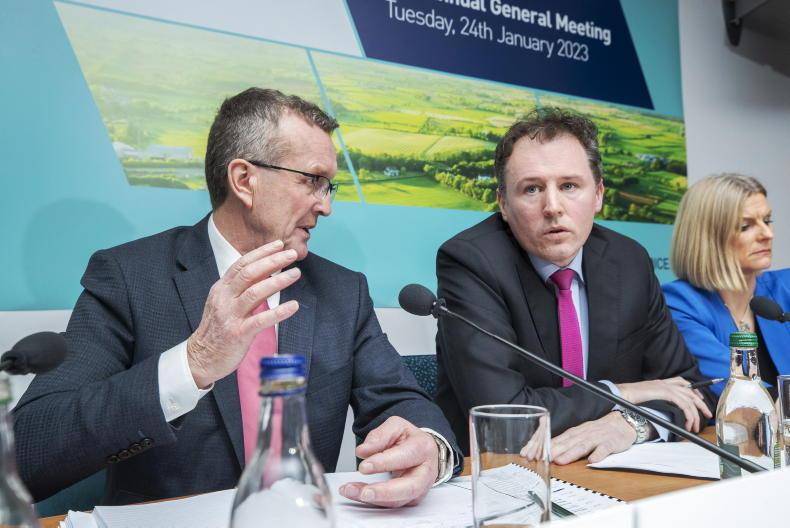
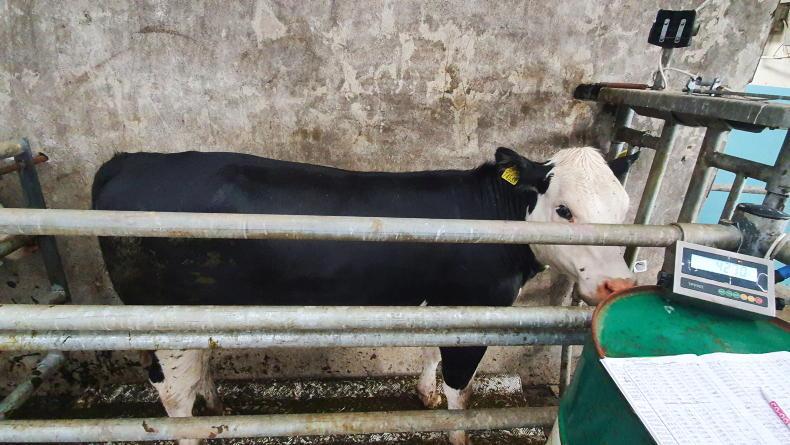

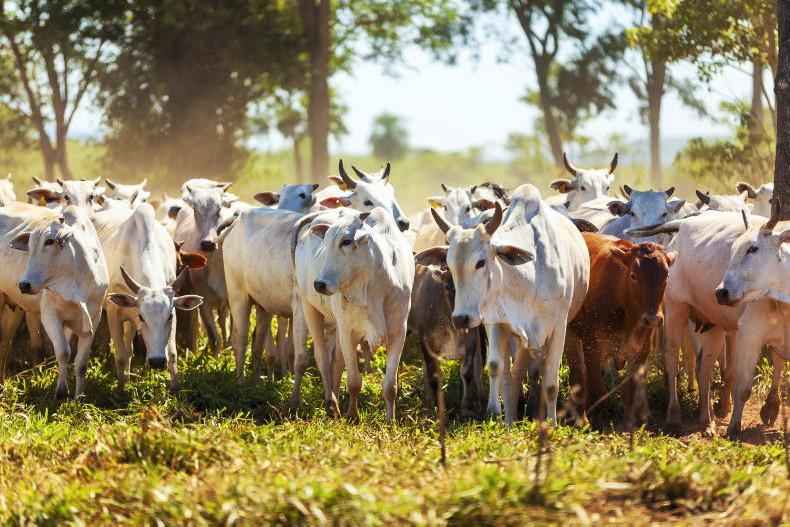
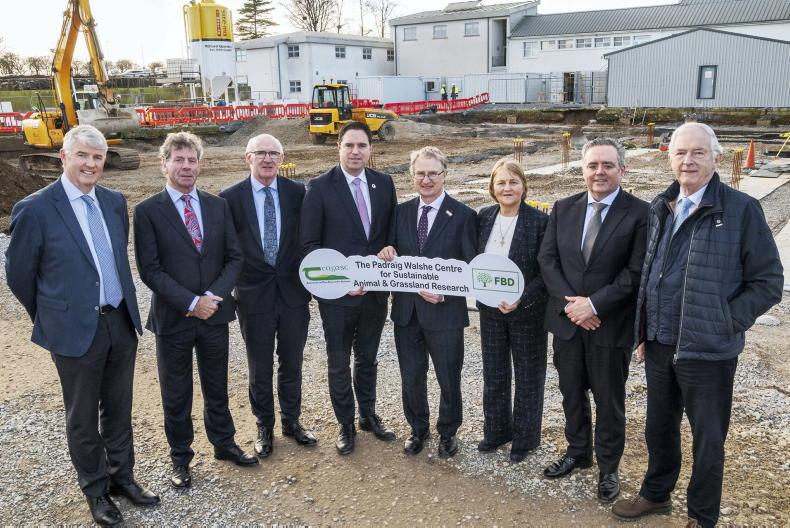
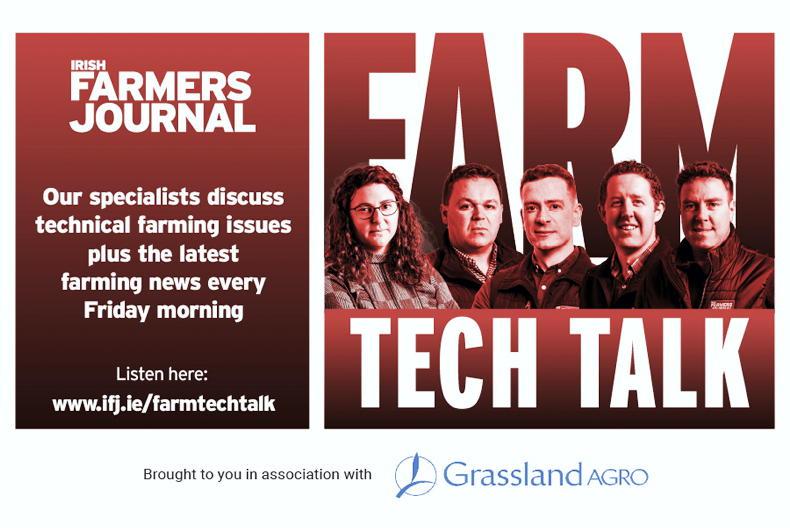
SHARING OPTIONS